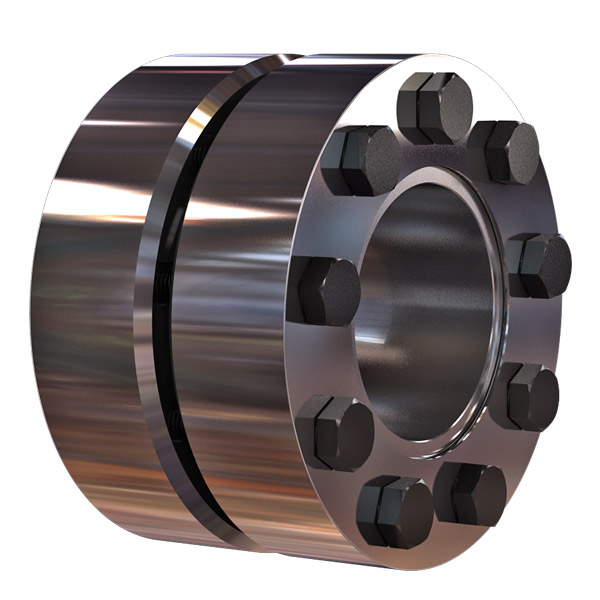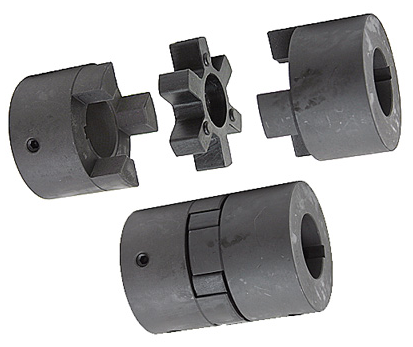1 2 Hex Shaft Coupler
Introduction to Hex Shaft Couplers
Hex shaft couplers are vital components in mechanical systems, facilitating the connection of two shafts to transmit torque and motion seamlessly. They are indispensable in various industries, from automotive to manufacturing.
What is a Hex Shaft Coupler?
A hex shaft coupler is a specific type of shaft coupling characterized by its hexagonal shape. This design allows for improved torque transmission and alignment, making it ideal for precision applications.
Materials Used in Hex Shaft Couplers
The choice of material affects the performance and durability of hex shaft couplers. Common materials include high-strength steel, aluminum, and composite materials, each offering unique advantages.
Applications of Hex Shaft Couplers
Hex shaft couplers are utilized in various applications, such as robotics, conveyor systems, and agricultural machinery. Their versatility and reliability make them a popular choice across multiple sectors.
Advantages of Using Hex Shaft Couplers
Hex shaft couplers offer several benefits, including high torque capacity, ease of installation, and enhanced alignment accuracy. They are designed to handle misalignment and reduce stress on connected components.
Types of Hex Shaft Couplers
There are several types of hex shaft couplers, including rigid couplers, flexible couplers, and clamping couplers. Each type serves specific functions and offers distinct advantages.
Rigid Hex Shaft Couplers
Rigid couplers provide a solid connection between shafts, ideal for applications requiring precise alignment. They are commonly used in high-torque scenarios where flexibility is not a priority.
Flexible Hex Shaft Couplers
Flexible couplers are designed to accommodate misalignment and absorb shock. They are suitable for applications where slight movement or vibration is expected, providing a balance between rigidity and flexibility.
Clamping Hex Shaft Couplers
Clamping couplers use a clamping mechanism to secure the shafts, offering easy installation and removal. They are ideal for applications requiring frequent maintenance or adjustments.
Installation of Hex Shaft Couplers
Proper installation is crucial for optimal performance. This involves aligning the shafts accurately, tightening the fastening screws, and ensuring the coupler is securely in place.
Maintenance of Hex Shaft Couplers
Regular maintenance includes inspecting the coupler for wear and tear, lubricating moving parts, and tightening any loose components. This ensures longevity and consistent performance.
Common Issues and Solutions
Common issues with hex shaft couplers include misalignment, wear, and fatigue. Solutions involve regular inspections, proper installation, and using high-quality materials tailored to the application.
Custom Hex Shaft Couplers
Custom couplers can be designed to meet specific requirements, offering tailored solutions for unique applications. These customizations can include material selection, size adjustments, and specialized features.
Cost Considerations
The cost of hex shaft couplers varies based on material, size, and complexity. Investing in high-quality couplers can reduce long-term maintenance costs and improve overall system reliability.
Future Trends in Hex Shaft Couplers
Advancements in materials science and manufacturing techniques are driving innovations in hex shaft coupler design. Future trends include the use of lightweight composites and smart materials for enhanced performance.

What are the Three Types of Coupling?
There are three primary types of coupling used in mechanical systems:
- Rigid Couplings: These couplings provide a solid connection between shafts, ideal for precise alignment and high-torque applications.
- Flexible Couplings: Designed to accommodate misalignment and absorb shock, flexible couplings are suitable for applications with slight movement or vibration.
- Fluid Couplings: Utilizing a fluid medium to transmit torque, these couplings are used in applications requiring controlled torque transmission and damping.

What Coupling is Used to Connect Two Shafts?
To connect two shafts, various types of couplings can be used depending on the application and requirements:
- Consider Torque Requirements: The amount of torque to be transmitted determines the type of coupling. High-torque applications typically use rigid or clamping couplings.
- Account for Misalignment: If there is potential for shaft misalignment, flexible couplings are preferred to accommodate axial, radial, and angular misalignment.
- Evaluate Environmental Conditions: Factors such as temperature, humidity, and exposure to chemicals impact material selection and coupling design.
- Frequency of Maintenance: Applications requiring frequent maintenance benefit from couplings that are easy to install and remove, such as clamping couplings.
- Budget Constraints: Cost considerations play a role in selecting the appropriate coupling. Balancing cost with performance and durability is essential.

What are the Two General Types of Shaft Couplings?
Shaft couplings can generally be categorized into two main types:
- Mechanical Couplings: These include rigid, flexible, and clamping couplings. They rely on physical connection mechanisms to transmit torque and motion.
- Hydraulic and Pneumatic Couplings: Utilizing fluid or air pressure, these couplings are used for applications requiring smooth and controlled torque transmission.
HZPT, located in Hangzhou, Zhejiang Province, is a modern enterprise integrating R&D, learning, production, and foreign trade. Upholding our core values of “integrity” as our business philosophy, we are committed to unity, progress, and innovation. We focus on coupling product research and innovation, integrating high-tech development, international trade, industrial investment, and domestic and international networks. Our business spans Asia, Europe, Africa, and North America, moving towards the vision of becoming a globally influential international group.
Our company specializes in the production of gear couplings, flexible pin couplings, serpentine spring couplings, universal couplings, star couplings, clamp couplings, diaphragm couplings, tire couplings, and other series of coupling products. We have a complete and scientific quality management system, with our own technical development and testing departments, and we hold CQC, ISO, CE certificates. We provide excellent sales services and technical support to our customers, serving hundreds of cooperative enterprises. Adhering to the business philosophy of “people-oriented, customer first,” we work sincerely with our customers for mutual development.
We pride ourselves on our professionalism in producing and selling shaft couplings. Here are five key advantages of our products and company:
- High-Quality Materials: We use premium materials to ensure the durability and performance of our couplings, catering to diverse industrial needs.
- Innovative Design: Our R&D team continuously innovates, creating advanced coupling designs that enhance efficiency and reliability.
- Comprehensive Testing: Each product undergoes rigorous testing to meet international standards, ensuring consistent quality and safety.
- Global Reach: With a presence in multiple continents, we offer localized support and services, making us a trusted partner worldwide.
- Customer-Centric Approach: We prioritize customer satisfaction by providing tailored solutions, prompt support, and continuous improvement based on feedback.
